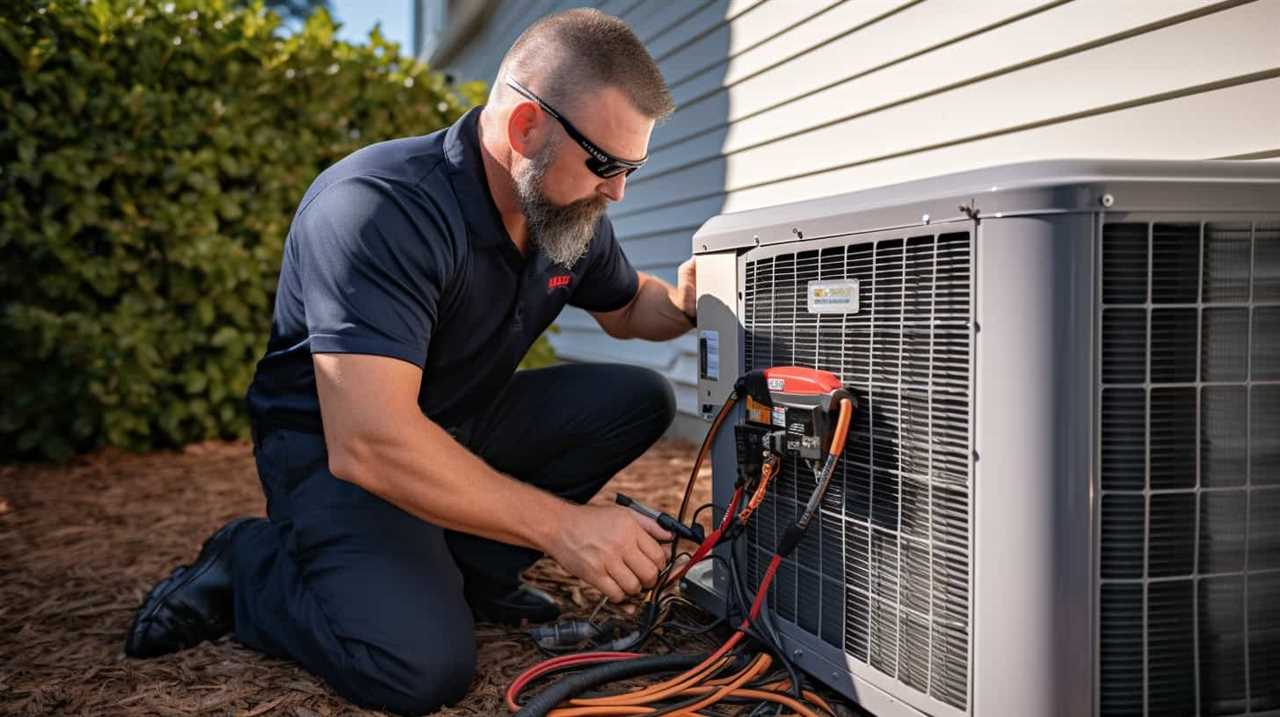Fed up with soaring energy costs and ineffective temperature management? We’ve got great news! This article aims to guide you on enhancing your heat pump’s efficiency for superior climate regulation.
By following our tips and implementing energy-saving strategies, you’ll not only save money but also reduce your carbon footprint.
So, let’s dive in and discover the secrets to maximizing heat pump efficiency for a more comfortable and sustainable living environment.
Key Takeaways
- Higher heat pump efficiency leads to lower energy consumption and reduced utility bills.
- Proper installation, regular maintenance, and insulation are crucial for optimizing heat pump efficiency.
- Ground-source heat pumps are more efficient than air-source ones.
- Utilizing energy-saving strategies such as programmable thermostats and insulation techniques can improve heat pump efficiency and promote sustainability.
Importance of Heat Pump Efficiency in Climate Control
We can enhance our climate control system by prioritizing heat pump efficiency. Improving heat pump efficiency offers several benefits that impact energy consumption.
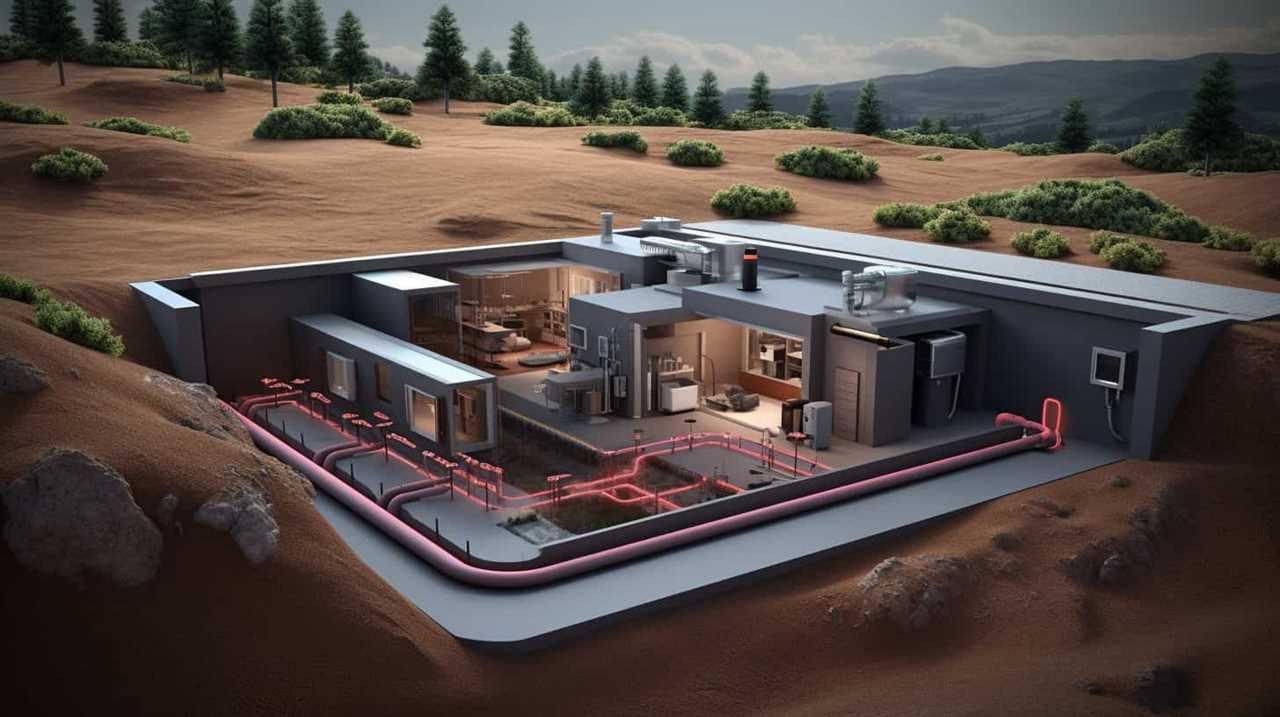
Firstly, higher heat pump efficiency means lower energy consumption, resulting in reduced utility bills for consumers. This is particularly important for individuals and organizations that desire to lower their carbon footprint and contribute to a more sustainable future.
Additionally, increased heat pump efficiency leads to improved indoor comfort, as the system can maintain a consistent temperature more effectively. By optimizing the efficiency of our heat pump systems, we can maximize the use of energy resources and minimize waste.
In the next section, we’ll explore the factors that affect heat pump efficiency in climate control, allowing us to make informed decisions about system design and operation.
Factors Affecting Heat Pump Efficiency in Climate Control
To optimize heat pump efficiency in climate control, it’s important to consider the factors that affect its performance.

One of the key factors is the heat pump technology itself. Different types of heat pumps, such as air-source, ground-source, and water-source, have varying levels of efficiency. For example, ground-source heat pumps tend to be more efficient than air-source ones, as they can extract heat from the ground, which has a more stable temperature.
Another factor to consider is the environmental impact of the heat pump. Heat pumps that use refrigerants with low global warming potential (GWP) are more environmentally friendly.
Additionally, proper installation, regular maintenance, and insulation of the building can also impact the efficiency of the heat pump.
Considering these factors will help ensure that the heat pump operates efficiently and minimizes its environmental impact.
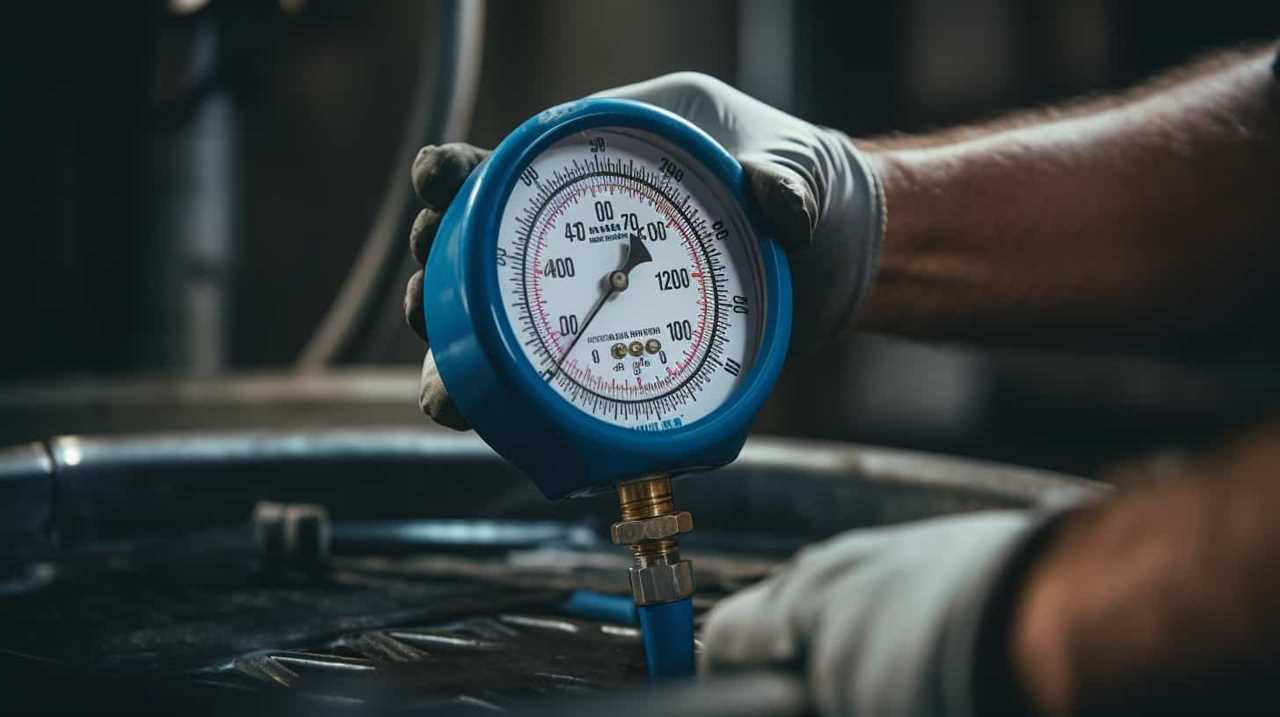
In the next section, we’ll discuss tips for improving heat pump efficiency in climate control.
Tips for Improving Heat Pump Efficiency in Climate Control
Two key tips for improving heat pump efficiency in climate control are to regularly clean and replace air filters and to schedule professional maintenance at least once a year.
Regularly cleaning and replacing air filters is crucial for maintaining optimal heat pump performance. Dirty or clogged filters can restrict airflow, reducing efficiency and increasing energy consumption. By cleaning or replacing filters every one to three months, homeowners can ensure that their heat pumps are running smoothly and efficiently.
Additionally, scheduling professional maintenance at least once a year allows for thorough inspection and cleaning of the entire system. This helps identify any potential issues or inefficiencies that may be affecting performance. Overall, these maintenance tasks contribute to the longevity and efficiency of heat pumps, helping homeowners save energy and reduce their carbon footprint.
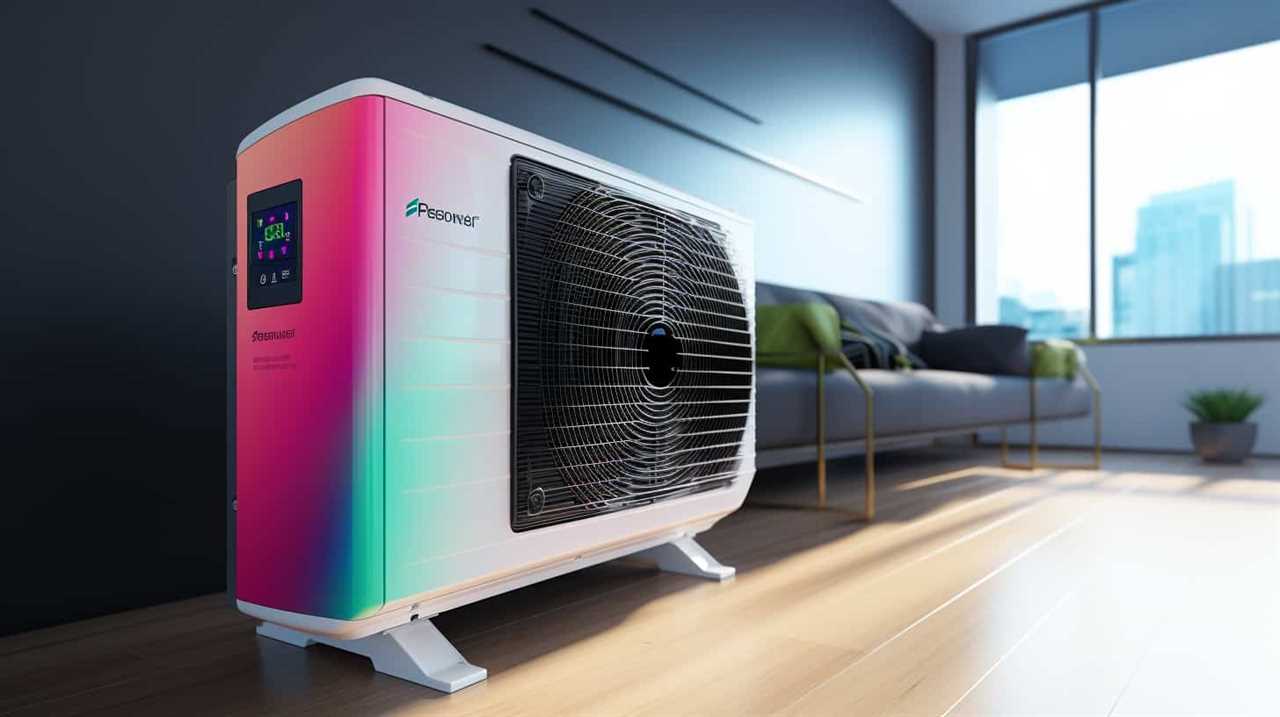
In addition to regular maintenance, setting energy efficient settings on the heat pump is another way to improve efficiency. This can include adjusting the temperature settings and utilizing programmable thermostats to optimize heating and cooling cycles. By maximizing energy efficiency, homeowners can further reduce their energy consumption and costs.
Energy-Saving Strategies for Heat Pump Climate Control
Implementing energy-saving strategies is essential for maximizing the efficiency of heat pump climate control. By adopting smart thermostats and utilizing insulation techniques, homeowners can significantly reduce their energy consumption and lower their utility bills. Smart thermostats allow users to program temperature settings based on their daily routines, ensuring that the heat pump operates only when needed. This not only saves energy but also provides a comfortable indoor environment. Additionally, proper insulation techniques can prevent heat loss or gain, reducing the load on the heat pump. This can be achieved by sealing air leaks, adding insulation to walls and attics, and using energy-efficient windows and doors. By implementing these energy-saving strategies, homeowners can improve heat pump efficiency and contribute to a more sustainable future.
| Energy-Saving Strategies | Benefits |
|---|---|
| Smart thermostats | – Programmable temperature settings |
- Reduced energy consumption
- Increased comfort | | Insulation techniques | – Minimized heat loss or gain
- Reduced load on heat pump
- Lower utility bills |
Maintenance and Upkeep for Optimal Heat Pump Efficiency in Climate Control
Regular maintenance and cleaning are crucial for ensuring optimal heat pump efficiency in climate control. To keep your heat pump running smoothly, follow these maintenance tips:
Establish a maintenance schedule: Create a routine for inspecting and servicing your heat pump. Regularly check the filters, coils, and electrical connections to ensure they’re clean and functioning properly.
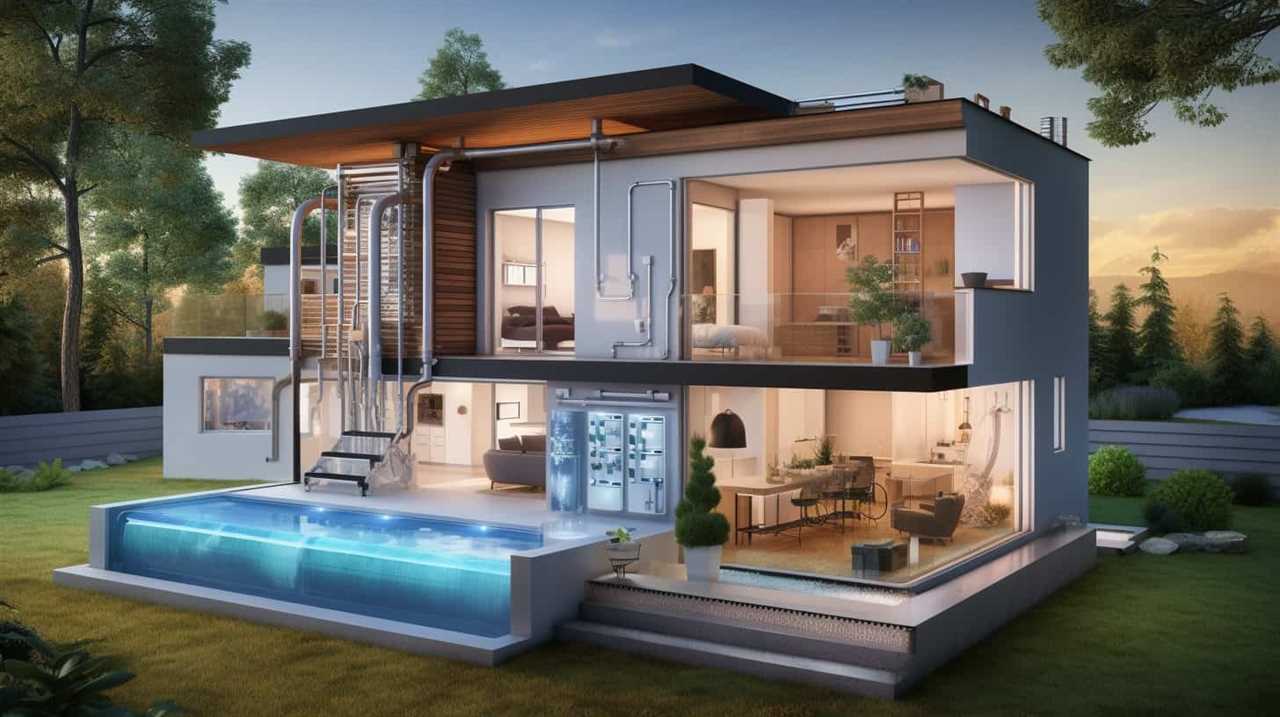
Clean and replace filters: Dirty filters can restrict airflow and reduce efficiency. Clean or replace filters every one to three months, or as recommended by the manufacturer.
Troubleshooting tips: If your heat pump isn’t working as expected, check for common issues. Verify that the thermostat is set correctly, ensure the circuit breaker isn’t tripped, and clear any debris around the outdoor unit.
Frequently Asked Questions
Can a Heat Pump Be Used for Both Heating and Cooling in a Climate Control System?
Yes, a heat pump can be used for both heating and cooling in a climate control system. This offers increased heat pump efficiency and numerous benefits, such as energy savings and year-round comfort.
How Long Does a Heat Pump Typically Last Before Needing to Be Replaced?
Heat pumps typically last around 15-20 years before needing replacement. Signs of a failing heat pump include reduced efficiency, frequent breakdowns, and increased energy bills. Regular maintenance can help prolong the lifespan.
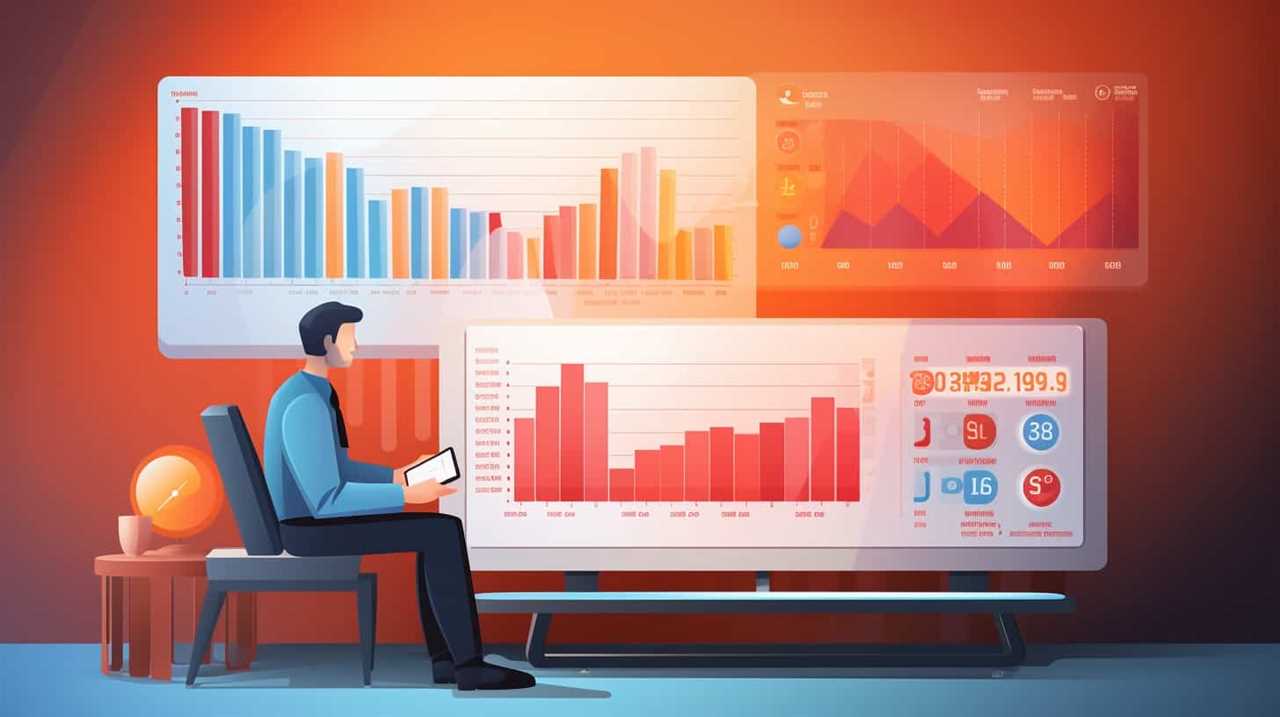
Are There Any Tax Incentives or Rebates Available for Installing an Energy-Efficient Heat Pump?
Tax incentives and rebates are available for installing energy-efficient heat pumps. These incentives help offset the cost of upgrading to a more efficient system, making it a smart choice for both the environment and your wallet.
Is It Necessary to Have Professional Maintenance Done on a Heat Pump Regularly?
Regular professional maintenance for a heat pump is necessary to ensure optimal performance and longevity. DIY maintenance may seem cost-effective, but it lacks the expertise and thoroughness required. Professional maintenance offers benefits like improved efficiency and early detection of potential issues.
Are There Any Alternative Energy Sources That Can Be Used With a Heat Pump for Climate Control?
Yes, there are alternative energy sources that can be used with a heat pump for climate control, which can increase heat pump efficiency. These sources include solar power, geothermal energy, and biomass.
What Are Some Renewable Energy Sources That Can Improve Heat Pump Efficiency?
Renewable energy sources like geothermal and solar power are effective means of boosting heat pump efficiency. Geothermal energy utilizes stable temperatures underground to enhance the heating and cooling process, while solar energy converts sunlight into electrical power. Both sources reduce dependency on fossil fuels, making heat pumps more eco-friendly and economical.
Conclusion
In the symphony of climate control, the heat pump efficiency plays a crucial role. By understanding the factors that affect its efficiency and implementing energy-saving strategies, we can optimize its performance.

Just as a conductor guides the orchestra to harmonious melodies, proper maintenance and upkeep ensure the heat pump’s optimal efficiency.
Together, we can create a seamless and efficient climate control system, orchestrating comfort and sustainability in perfect harmony.

